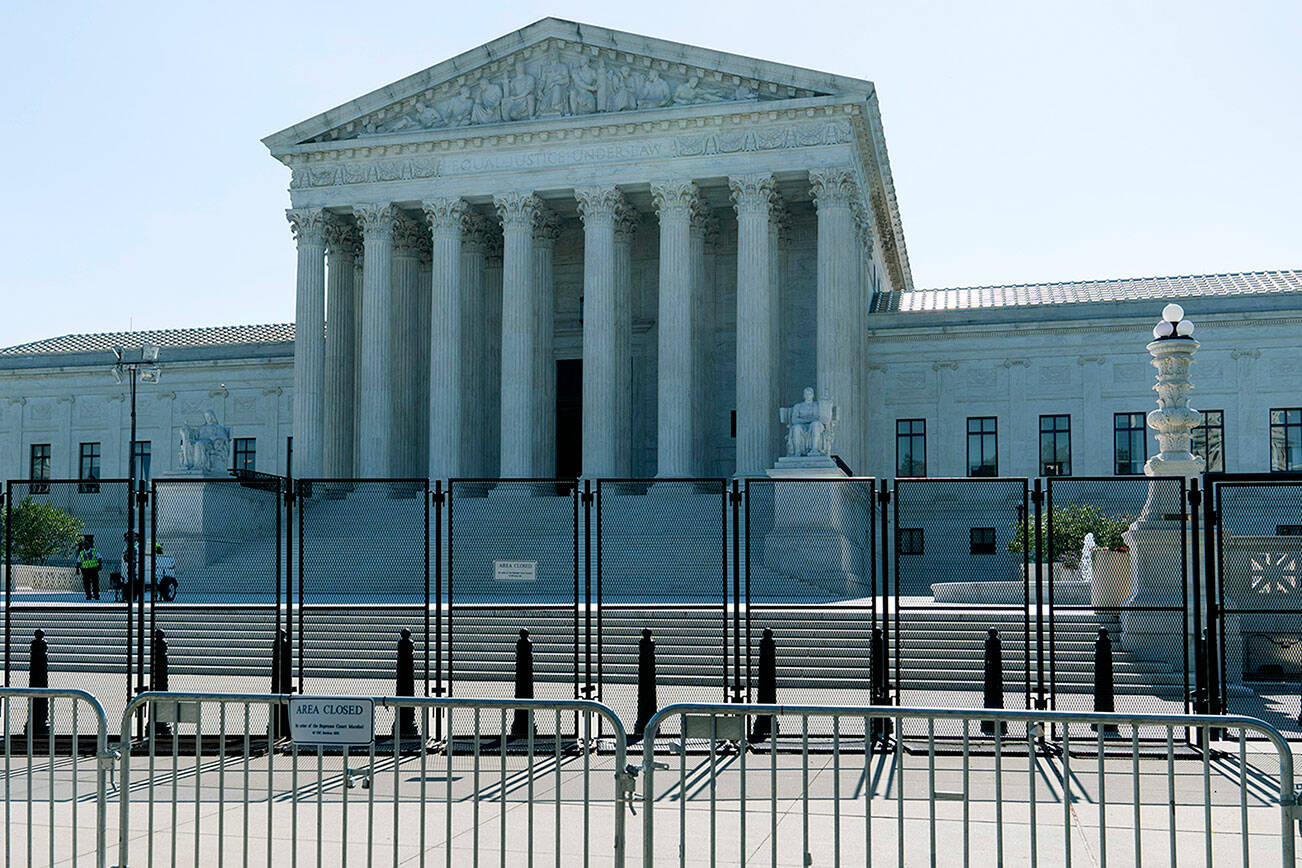By Mark Sherman / Associated Press
WASHINGTON D.C. — In a blow to the fight against climate change, the Supreme Court on Thursday limited how the nation’s main anti-air pollution law can be used to reduce carbon dioxide emissions from power plants.
By a 6-3 vote, with conservatives in the majority, the court said that the Clean Air Act does not give the Environmental Protection Agency broad authority to regulate greenhouse gas emissions from power plants that contribute to global warming.
The court’s ruling could complicate the administration’s plans to combat climate change. Its proposal to regulate power plant emissions is expected by the end of the year. The decision also could have a broader effect on other agencies’ regulatory efforts beyond climate change and air pollution.
President Joe Biden aims to cut the nation’s greenhouse gas emissions in half by the end of the decade and to have an emissions-free power sector by 2035. Power plants account for roughly 30% of carbon dioxide output.
“Capping carbon dioxide emissions at a level that will force a nationwide transition away from the use of coal to generate electricity may be a sensible ‘solution to the crisis of the day,’” Chief Justice John Roberts wrote in his opinion for the court.
But Roberts wrote that the Clean Air Act doesn’t give EPA the authority to do so and that Congress must speak clearly on this subject.
“A decision of such magnitude and consequence rests with Congress itself, or an agency acting pursuant to a clear delegation from that representative body,” he wrote.
In a dissent, Justice Elena Kagan wrote that the decision strips the EPA of the power Congress gave it to respond to “the most pressing environmental challenge of our time.”
Kagan said the stakes in the case are high. She said, “The Court appoints itself—instead of Congress or the expert agency—the decisionmaker on climate policy. I cannot think of many things more frightening.”
Richard Revesz, an environmental expert at the New York University School of Law, called the decision “a significant setback for environmental protection and public health safeguards.”
But Revesz said in a statement that the EPA still has authority to address greenhouse gas emissions from the power sector.
The court held that Congress must speak with specificity when it wants to give an agency authority to regulate on an issue of major national significance.
Senate Democratic leader Chuck Schumer of New York said the decision would have a wider effect. “The consequences of this decision will ripple across the entire federal government, from the regulation of food and drugs to our nation’s health care system, all of which will put American lives at risk,” Schumer said.
Several conservative justices have criticized what they see as the unchecked power of federal agencies.
Those concerns were evident in the court’s orders throwing out two Biden administration policies aimed at reducing the spread of COVID-19. Last summer, the court’s 6-3 conservative majority ended a pause on evictions over unpaid rent. In January, the same six justices blocked a requirement that workers at large employers be vaccinated or test regularly and wear a mask on the job.
The justices heard arguments in the case on the same day that a United Nations panel’s report warned that the effects of climate change are about to get much worse, likely making the world sicker, hungrier, poorer and more dangerous in the coming years.
The power plant case has a long and complicated history that begins with the Obama administration’s Clean Power Plan. That plan would have required states to reduce emissions from the generation of electricity, mainly by shifting away from coal-fired plants.
But that plan never took effect. Acting in a lawsuit filed by West Virginia and others, the Supreme Court blocked it in 2016 by a 5-4 vote, with conservatives in the majority.
With the plan on hold, the legal fight over it continued. But after President Donald Trump took office, the EPA repealed the Obama-era plan. The agency argued that its authority to reduce carbon emissions was limited and it devised a new plan that sharply reduced the federal government’s role in the issue.
New York, 21 other mainly Democratic states, the District of Columbia and some of the nation’s largest cities sued over the Trump plan. The federal appeals court in Washington ruled against both the repeal and the new plan, and its decision left nothing in effect while the new administration drafted a new policy.
Adding to the unusual nature of the high court’s involvement, the reductions sought in the Obama plan by 2030 already have been achieved through the market-driven closure of hundreds of coal plants.
Power plant operators serving 40 million people called on the court to preserve the companies’ flexibility to reduce emissions while maintaining reliable service. Prominent businesses that include Apple, Amazon, Google, Microsoft and Tesla also backed the administration.
Nineteen mostly Republican-led states and coal companies led the fight at the Supreme Court against broad EPA authority to regulate carbon output.
Talk to us
> Give us your news tips.
> Send us a letter to the editor.
> More Herald contact information.

























